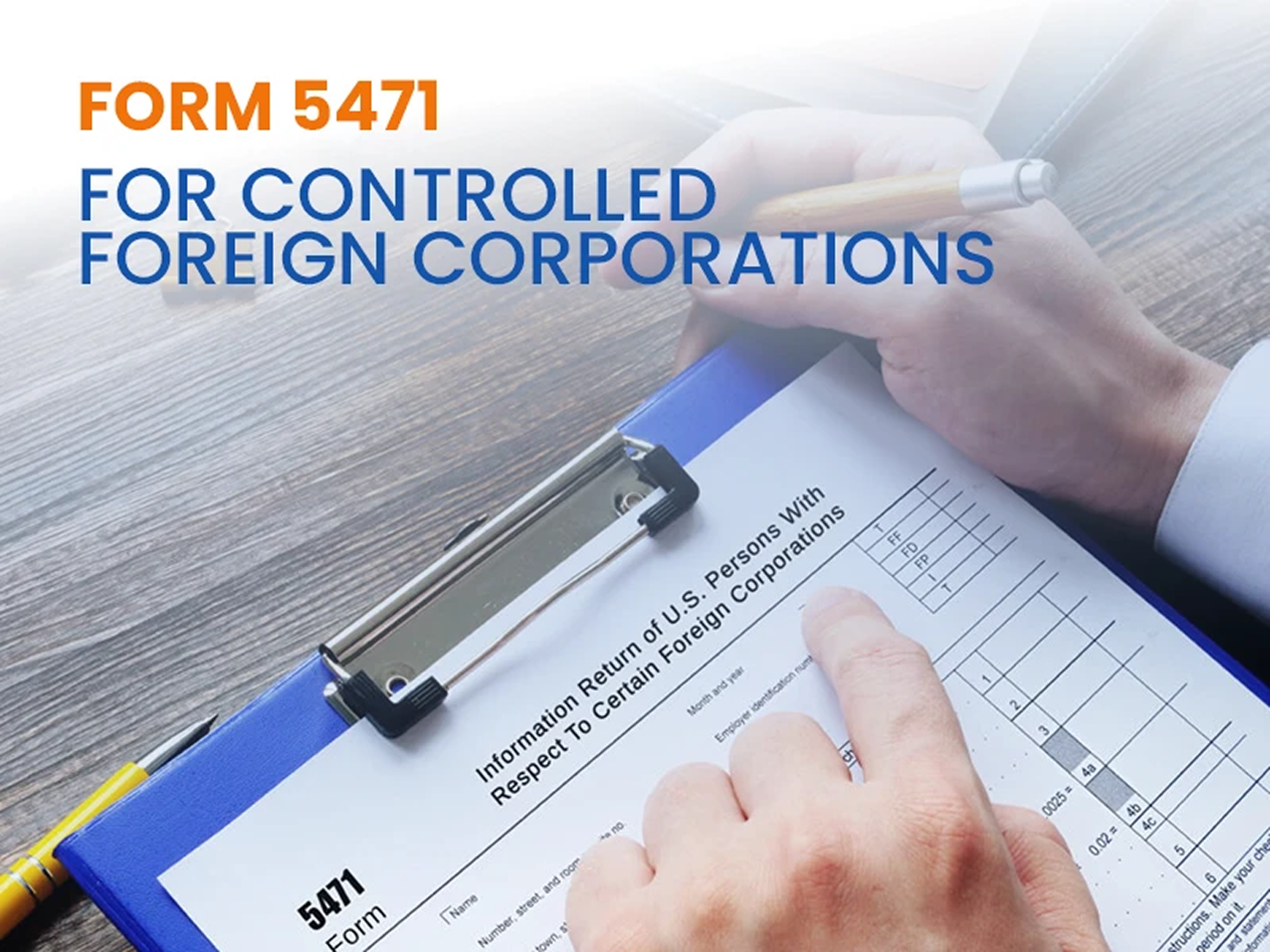
Sharing ownership in a foreign corporation can be exciting and rewarding, but has additional disclosure requirements by the IRS. Form 5471 is one of these disclosure requirements and applies to US citizens with ownership in a foreign corporation. If you share ownership in a foreign company, you must deal with the complexities of filing Form 5471. Understand the basics involved in filing Form 5471 below.
Form 5471 and Controlled Foreign Corporations
Understanding Form 5471
Form 5471 is essentially an information statement and not a tax return. It is officially known as the Information Return of US Persons concerning Certain Foreign Corporations. It is meant to inform the IRS about US citizens' holdings in foreign companies and prevent people from hiding such overseas assets. The IRS also needs to be informed about which countries these investments have been made. Failing to file Form 5471 can attract a penalty but not tax obligations, except in certain cases. These exceptions include shareholdings in a Controlled Foreign Corporation (CFC) which can attract the GILTI (Global Intangible Low-taxed Income) tax. However, you only need to file Form 5471 if you have 10% or more ownership in a foreign corporation. The law applies to any US citizen, partnership, trust, corporation, estate, etc.
IRS Categorization for Filing Form 5471
The IRS has categorized those required to file Form 5471 into five groups:
1. Category 1
This category includes US citizens who are shareholders of specified foreign corporations (SFCs) and are subject to transition tax under section 965.
2. Category 2
This category includes US citizens who are officers and directors of foreign corporations with other US shareholders holding 10% of the company's stock.
3. Category 3
US citizens who have acquired or disposed of substantial holdings in a foreign corporation.
4. Category 4
US citizens who had control over a foreign company for at least 30 days during the taxation year.
5. Category 5
US citizens owning shares in a controlled foreign corporation (CFC).
Understanding what Controlled Foreign Corporations are
A foreign company in which US shareholders hold more than 50% of the stock and combined voting power is known as a controlled foreign corporation. Here, “US shareholder” implies a US citizen who owns 10% or more of the total combined voting power in the foreign corporation. If a US citizen owns less than 10% of the total combined voting power, his/her ownership will not be considered to deem a foreign corporation a controlled foreign corporation. If you hold stock in such a controlled foreign corporation you may be liable to pay GILTI tax.
Direct, Indirect, and Constructive Stock Ownership
The IRS has created a wide scope for Form 5471, requiring compliance by those with direct, indirect, and constructive foreign stock ownership. Direct foreign stock ownership is when you directly own 10% or more of a foreign company's stock. Indirect ownership of a foreign company's stock includes those who own shares in a foreign company through a complex network of entities which may include partnerships, other corporations, trusts, etc. If you own stock in a foreign company indirectly, and meet the 10% threshold, you are required to file Form 5471.
Apart from these two forms of stock ownership, there is another form known as constructive ownership. The constructive ownership rules are based on the attribution rules of IRC Section 318, and permit the IRS to attribute certain forms of foreign stock ownership to you based on your connections or relationships. In such instances too you are required to file Form 5471.
Significance of Form 5471 for US Shareholders of Controlled Foreign Corporations
IRS rules for CFCs are complex, with different reporting implications for various shareholding scenarios. The main reason behind reporting in Form 5471 is that the IRS needs to know whether US taxpayers are involved in a Controlled Foreign Corporation. Form 5471 is generally submitted along with the yearly tax return Form 1040. Form 5471 is a crucial and complicated component of the tax returns of a US citizen with holdings in a controlled foreign corporation. Depending on the taxpayer's category, he/she will have to file different schedules under Form 5471. In its entirety, the form must include details about the identity of the controlled foreign company; its share structure; the shareholdings of its US shareholders; directors and officers who are US citizens; balance sheet and income statement; particulars of financial transactions between the company and its US shareholders; changes in shareholdings of any US shareholders.
Penalty
Failing to file Form 5471 on time can attract steep penalties. The IRS can levy a penalty of $10,000 on each failure for every applicable accounting year plus an additional $10,000 for every month that the failure to comply continues, beginning 90 days after the taxpayer has been notified of the delinquency and extending up to a maximum of $60,000 per return.
Filing Form 5471 is a complex and daunting process for shareholders of controlled foreign corporations, irrespective of whether you hold shares directly, indirectly, or through constructive ownership. If you own shares in more than one controlled foreign corporation, you must file a separate Form 5471 for each such corporation. Failing to comply with the provisions of Form 5471 can attract high penalties.
Finlotax: An Efficient Taxation Firm in CA
We are Finlotax, experts you can count on for all your tax needs in CA. Avail our unmatched services in bookkeeping, tax prep, tax planning, payroll, and compliance solutions. If you need to deal with the complexities of Form 5471, just reach out to us at 4088229406 and we will guide you through the entire process of filing your returns. Trust us for a hassle-free and smooth return filing process!

